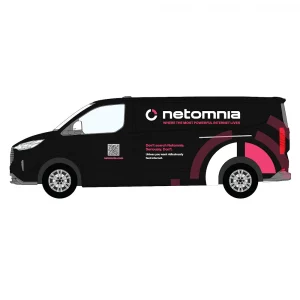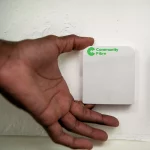Sponsored Links
Broadband Creates "Impatient Nation"
Posted: 27th Aug, 2004 By: MarkJ
New research from Cable & Wireless (C&W) has found that modern technology, such as broadband Internet access, is causing people to become impatient with the comparatively slow pace of 'real life' service delivery:
Nearly 2 in 5 people (38%) surveyed for Cable & Wireless admitted they had become more impatient in the last five years1. The findings of the poll suggest that new technologies are driving consumers' expectation of service delivery, so that Britons' fuses are becoming ever shorter. The survey identifies a nation of three-minute men', characterised by the fact that:
Men are twice as likely as women to stop queuing:
* 1 in 5 (19%) men would give up waiting in a shop after three minutes, compared to 1 in 10 (9%) women
* almost half (46%) of men would give up waiting online after three minutes, compared to a quarter (27%) of women
* 2 in 5 (40%) men would give up waiting on the phone after three minutes, compared to 1 in 3 (33%) women
* almost half (47%) of shoppers wouldn't queue for more than 5 minutes in a high street shop
Voting with their feet
The impatience of the UK's 'three-minute men' soon boils over into customer defections. In what will make for alarming reading for companies, 50% of consumers claim to have given up waiting on the phone to a retailer and have permanently avoided the brand and organisation thereafter.
While young people appear to be more forgiving - with 65% prepared to give companies another chance - older customers display Victor Meldrew-like' behaviour with 59% of 45-64 year olds unwilling to give repeat custom to an organisation with which they've lost patience in the past.
Technology fuelling expectation
1 in 3 (34%) of those surveyed had access to a broadband internet connection, and since its installation felt it had reduced their patience in the 'real world', causing them to demand an always-on, instant response in other areas of their life too.
However it appears that websites are failing to keep pace with consumer needs. The biggest irritation with the online presence of retailers, banks and government was the slowness of their websites (16%) - greater even than unavailability, crashing or annoying pop-up' advertisements.
Nearly 2 in 5 people (38%) surveyed for Cable & Wireless admitted they had become more impatient in the last five years1. The findings of the poll suggest that new technologies are driving consumers' expectation of service delivery, so that Britons' fuses are becoming ever shorter. The survey identifies a nation of three-minute men', characterised by the fact that:
Men are twice as likely as women to stop queuing:
* 1 in 5 (19%) men would give up waiting in a shop after three minutes, compared to 1 in 10 (9%) women
* almost half (46%) of men would give up waiting online after three minutes, compared to a quarter (27%) of women
* 2 in 5 (40%) men would give up waiting on the phone after three minutes, compared to 1 in 3 (33%) women
* almost half (47%) of shoppers wouldn't queue for more than 5 minutes in a high street shop
Voting with their feet
The impatience of the UK's 'three-minute men' soon boils over into customer defections. In what will make for alarming reading for companies, 50% of consumers claim to have given up waiting on the phone to a retailer and have permanently avoided the brand and organisation thereafter.
While young people appear to be more forgiving - with 65% prepared to give companies another chance - older customers display Victor Meldrew-like' behaviour with 59% of 45-64 year olds unwilling to give repeat custom to an organisation with which they've lost patience in the past.
Technology fuelling expectation
1 in 3 (34%) of those surveyed had access to a broadband internet connection, and since its installation felt it had reduced their patience in the 'real world', causing them to demand an always-on, instant response in other areas of their life too.
However it appears that websites are failing to keep pace with consumer needs. The biggest irritation with the online presence of retailers, banks and government was the slowness of their websites (16%) - greater even than unavailability, crashing or annoying pop-up' advertisements.
Search ISP News
Search ISP Listings
Search ISP Reviews
Latest UK ISP News








Cheap BIG ISPs for 100Mbps+
150,000+ Customers | View More ISPs
Cheapest ISPs for 100Mbps+
Modest Availability | View More ISPs
Latest UK ISP News
Helpful ISP Guides and Tips
Sponsored Links
The Top 15 Category Tags
- FTTP (6722)
- BT (3863)
- Politics (3036)
- Business (2736)
- Openreach (2629)
- Building Digital UK (2488)
- Mobile Broadband (2434)
- FTTC (2132)
- Statistics (2102)
- 4G (2062)
- Virgin Media (1997)
- Ofcom Regulation (1761)
- 5G (1692)
- Fibre Optic (1587)
- Wireless Internet (1581)
Sponsored
Copyright © 1999 to Present - ISPreview.co.uk - All Rights Reserved - Terms , Privacy and Cookie Policy , Links , Website Rules






























